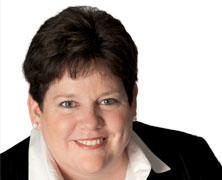The stories and statistics about the oppression of girls and women across the globe are staggering—and worse, numbing. The scope of the problem seems too big to tackle, especially for an individual. But over the past several years, I’ve read a few books that give me both hope and inspiration. Two, in particular, offer exceedingly pragmatic solutions, with education for women at their heart.
Half the Sky, by Nick Kristof and Sheryl WuDunn, is no longer just a book—it’s a movement aimed at ending the oppression of women and girls worldwide. It’s about raising awareness of the issues and identifying concrete steps to fight these problems. For example, when it comes to educating girls, “simply building new schools is not enough,” according to HalfTheSkyMovement.org. “The trick is to find ways to keep teachers and students regularly attending school. One of the most cost-effective ways to increase school attendance is to deworm students. For as little as 50 cents per student, deworming has been shown to increase student alertness and has reduced school absenteeism by 25 percent in some regions. Other simple solutions include offering small scholarships to girls who do well in school, as well as helping girls manage their menstruation by providing sanitary pads and ensuring they have access to toilets at school.” These are manageable challenges.
Perhaps the book that has most inspired me in my life is Mountains Beyond Mountains, by Tracy Kidder. It’s the story of Paul Farmer, who in 1983 as a first-year medical student at Harvard, established a community-based health project in Haiti known as Partners In Health. Today, PIH works with other organizations to operate projects serving 2.4 million people in 12 countries, all utilizing the same model: breaking the cycle of poverty and disease by hiring and training community health workers—mostly women—who provide health education, refer the sick to clinics, and deliver medicines and social support to patients in their homes. In Lesotho, for example, one out of every 62 women dies from hemorrhage, obstructed labor or other complications of pregnancy and childbirth. Since 2010, PIH has trained and employed more than 600 women, many of them traditional birth attendants who had formerly helped women deliver their babies at home, to locate all expectant mothers in their villages, accompany them to regular pre- and post-natal visits, and bring them to the clinic to deliver their babies with the help of a doctor or nurse/midwife. Check out PIH.org to learn more.







